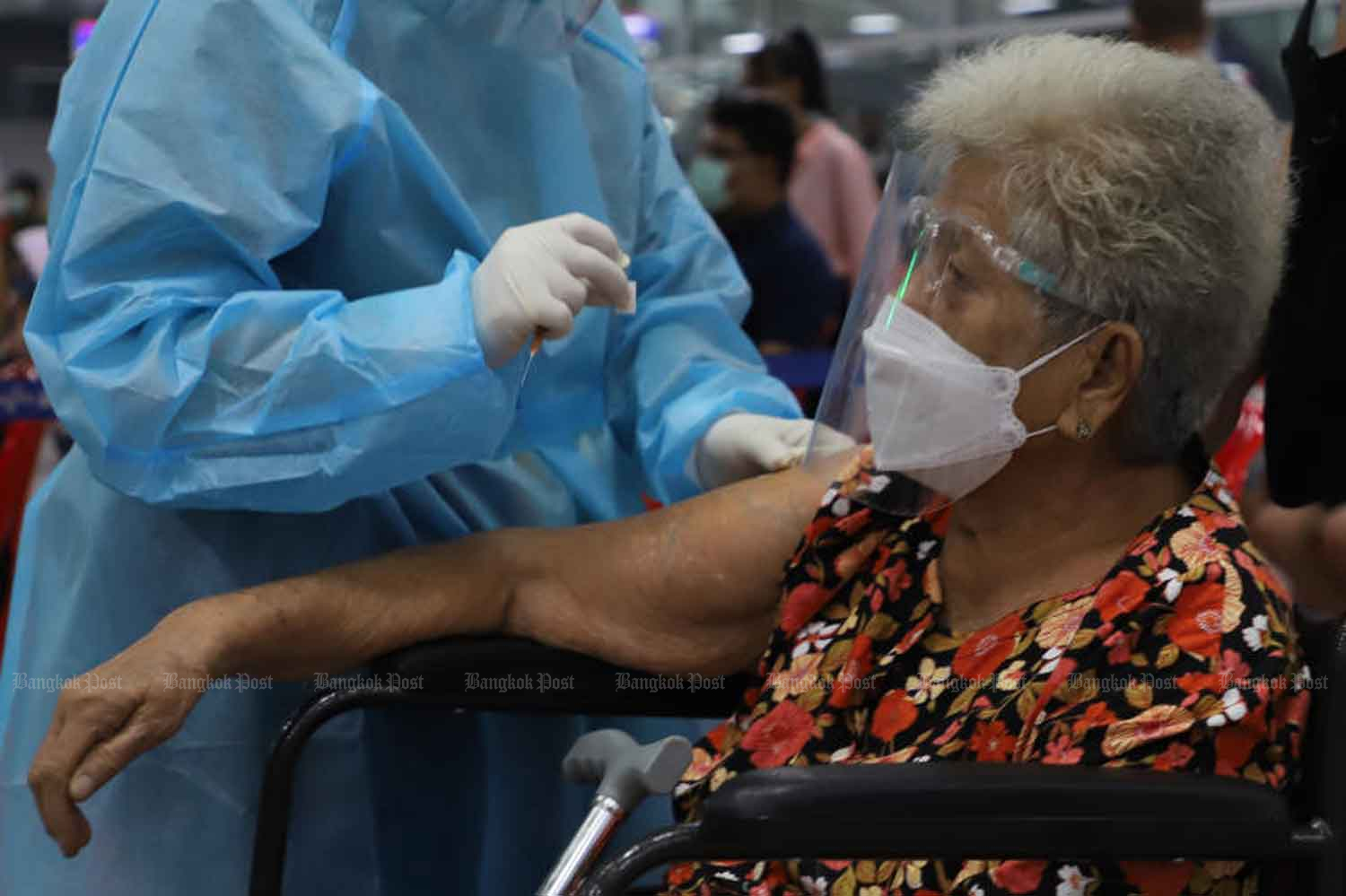
Authorities plan to acquire enough Covid-19 vaccines next year initially for 18 million people in high-risk groups, with the number of shots each person will need subject to World Health Organization (WHO) guidance.
The National Vaccine Committee on Thursday approved in principle the acquisition of vaccines for people in three groups, said Dr Opas Karnkawinpong, permanent secretary at the Ministry of Public Health.
They are elderly people and those with underlying illnesses, medical personnel and others in close contact with possible Covid cases, and village-based health volunteers.
“The groups have about 18 million people altogether. If it is recommended that they have one dose a year, they will need 18 million doses. If they need two doses, 36 million doses will be procured,” Dr Opas said.
The number of doses and vaccine formulas have yet to be determined, pending the receipt of academic information on the best way to protect against new and existing strains from organisations such as the WHO, he said.
“The WHO has not recommended the number of vaccine doses and their administration because there has not been enough academic data,” he said.
Dr Opas said that in his personal view, newly launched vaccines are not very different from older products but they are much more expensive.
The vaccine committee is waiting for useful data to make sure that future vaccine acquisition will be the most cost-effective, he said.
“How many more vaccine doses will be procured will depend on that information,” he said. “The disease is no longer a dangerous communicable disease. Things are returning to normal and budget spending will, too.”
As well, the committee agreed to let local administrative organisations procure Covid vaccines by themselves but all parties should cooperate to prevent duplicated budget spending, Dr Opas said.
The Bangkok Metropolitan Administration, he said, had set a good example as a local administrative organisation that boosted spending on health promotion when it bought Covid vaccines directly, he said.
Last year 143 million Covid vaccine doses were administered in the country and they saved at least 500,000 people, Dr Opas said.
As of Nov 5, about 82% of the population had received at least one shot, 77% had received at least two shots and 46% had at least three shots, according to data from the Department of Disease Control.
The ministry has projected that Covid infections that require hospital admission will rise by about 5% during the winter season as the reopening of schools and holiday festivities make virus transmission easier.
Infections that required people to get treatment in hospitals averaged 394 cases per day from Oct 30 to Nov 5, an increase of about 5% from about three weeks earlier, said Dr Opas.
“The increase in infections is partly because of the slowing rate of new vaccinations against Covid-19 among Thai people, causing a decrease in immunity,” he said. “When combined with various year-end activities, the result is more infections.”
